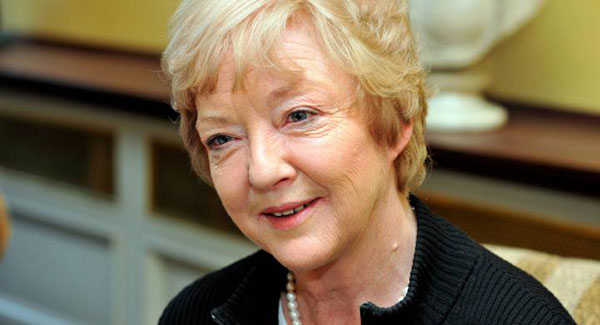As we ease into the early days of 2020, with threats of global conflict and environmental disaster prominent in news and current affairs coverage so far, anything that gives us well-grounded hope is welcome.
But good news doesn’t tend to get much prominence. The dilemmas and paradoxes surrounding these issues were aired in a leisurely and insightful way in A Small Matter of Hope (BBC Radio 4) last Saturday morning. Fraser Nelson, editor of the Spectator, explored these issues with a variety of contributors, including his own staff.
His thesis was that the world is getting much better by many important measurements, including life expectancy, child mortality and education, but the media still reports primarily the bad stuff. It’s as if our brain looks out for danger and negativity, perhaps as a survival mechanism. Maybe the optimists were all eaten by wolves and we are the descendants of the pessimists!
Not all theorists take this evolutionary line, concentrating more on choice and different personality types.
Negative headlines tend to get more clicks online which suits the commercially driven. Disaster stories attract more attention – ‘if it bleeds it leads’. Author Steven Pinker puts a lot of this down to the news. He finds an “optimism gap” where people are positive about their own lives but negative about the state of the country in general. But Sarah Baxter of the Sunday Times thought readers didn’t want to be patronised with feel-good stories – journalists should show what’s wrong and what can be done to put things right. She instanced brave journalists who risked their lives to report from war torn areas to bring us the truth of what was happening.
It was suggested that some journalists had a “bad news bias”, fearing that too much positive news would create complacency. Yet lack of awareness about the progress we are making can create potentially harmful discontent. Pinker suggested that what was needed in news media was neither optimism nor pessimism, but accuracy. He believed we could make real progress and stressed the importance of sympathy, self-control and reason.
You can catch up on this discussion on the BBC website or the BBC Sounds app and likewise with the BBC World Service programme In the Studio – Singing for the Pope (New Year’s Eve). This fascinating documentary explored the work of the Sistine Chapel Choir as they prepared for the Christmas vigil Mass in the Vatican. Presenter Glyn Tansley told us that this choir is one of the oldest choirs in the world dating from before the building of the Sistine Chapel itself – with its origins in a group of Vatican singers from the 4th Century.
Tansley himself wasn’t particularly religious but found the chapel awe-inspiring and was hugely enthusiastic about the music. I liked his idea that the music breathed life into the amazing paintings in the chapel.
Composers
We learned that one of the famous composers for the group, Palestrina, worked in the chapel at the same time as Michelangelo, and that the choir gallery even had some historical graffiti from 16th Century composer Josquin Des Prez. Pope Francis had described the choir as “a high place for artistic liturgical expression” and there was a funny story about how he inadvertently interrupted a choir recording by ringing the chapel doorbell to pay a visit.
One chorister, a Polish man honoured to be the first Polish singer in the choir, spoke of how it helped him to feel “completely connected” with his religion, making him feel like a “true person” – the music wasn’t just something nice and aesthetic.
Standing in as presenter of the Ryan Tubridy Show (RTÉ Radio 1) for a day on Monday, comedian Oliver Callan had a cheerful and optimistic approach to the New Year. He also acknowledged the feast of the Epiphany, which was welcome, and linked in the ‘Nollaig na mBan’ and ‘Little Christmas’ traditions. He was conscious of valuing people who were national treasures while they were still with us and probably he had the unexpected death of Marian Finucane in mind. I didn’t always agree with her but she was an institution in broadcasting, made her weekend shows on RTÉ Radio 1 essential listening and uniquely her own, exuding a calm and genial reasonableness. She will be sorely missed – may she rest in peace.
Spare a thought for RTÉ staff, suffering a series of bereavements – Larry Gogan the most recent – among their colleagues in recent months. That has to hurt.
***
Pick of the Week
The Great Give Back
Virgin Media 1, Tuesday, January 14, 10 pm
Hairdresser Dylan Bradshaw and his wife Charlotte provide assistance for brothers Conor and Colin Grassick from Drumcondra in Dublin.
FATAL FLAWS-LEGALISING ASSISTED DEATH
EWTN, Wednesday, January 15, 9.30 pm
Filmmaker Kevin Dunn delves into the real life consequences of legalised euthanasia and assisted suicide. Dunn discusses his film on EWTN Live on Wednesday night at 1am, repeated Thursday at 8 pm and Friday at 11am.
All Walks Of Life
RTÉ1, Friday, January 17, 8.30 pm
Mary McAleese brings a diverse selection of people on spiritual journeys along some of Ireland’s ancient pilgrim trails.


 Brendan O’Regan
Brendan O’Regan Marian Finucane
Photo:WicklowNews
Marian Finucane
Photo:WicklowNews 